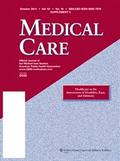News
9/22/2014
Deal Reached On Tax-Free Disability Savings Accounts
Federal lawmakers say they've reached a deal to move forward on legislation that would establish a new way for people with disabilities to save money without jeopardizing their government benefits. Members of the U.S. Senate said Friday that they have an agreement that will allow the Achieving a Better Life Experience, or ABLE, Act to proceed.
9/22/2014
Finance Senators Commit to Path Forward on Able Act
Members of the United States Senate Committee on Finance today outlined a path forward on the Achieving a Better Life Experience (ABLE) Act, issuing this statement.
9/22/2014
For Autistic Adults, Coverage Options Are Scarce
It is getting easier for parents of young children with autism to get insurers to cover a pricey treatment called applied behavioral analysis. Once kids turn 21, however, it is a different ballgame entirely.
9/22/2014
New Medicaid Enrollees Pleased With Coverage, But Note They Still Face Obstacles
Focus-group research finds that people who received Medicaid coverage under the health law's expansion are generally happy but find roadblocks to getting care, The Washington Post reports.
9/22/2014
Senator Harkin Introduces Bills to Promote Access to Housing, Transportation, and Exercise and Fitness Services
Last week, Senator Tom Harkin (D-IA) introduced three bills as part of his �Access for All� agenda to help people with disabilities achieve economic independence and reach the middle class.

9/19/2014
Special Issue of Medical Care Highlights Health Disparities at the Intersection of Disability, Race and Ethnicity
Introductory article by the supplement guest editors, Willi Horner-Johnson, PhD, of Oregon Health & Science University, Portland; Glenn T. Fujiura, PhD, of the University of Illinois at Chicago; and Tawara D. Goode, MA, of Georgetown University.
It's well established that Americans with disabilities and those in underserved racial/ethnic groups face significant disparities in access to health care. Now, researchers are beginning to examine the unique patterns of health care inequalities experienced by racially and ethnically diverse patients with disabilities, according to a special October supplement to Medical Care. The journal is published by Lippincott Williams & Wilkins, a part of Wolters Kluwer Health.

9/18/2014
AUCD Statement on today's Senate Hearing on Overcoming Barriers to Economic Self-Sufficiency for People with Disabilities
WASHINGTON, DC (September 18, 2014) - The Association of University Centers on Disabilities (AUCD) applauds Chairman Tom Harkin (D-IA), Ranking Member Lamar Alexander (R-TN), and other Senate HELP Committee Members for holding a hearing today on overcoming persistent barriers to economic self-sufficiency for people with disabilities.
9/18/2014
States' Customized Efforts To Expand Medicaid Could Complicate Reform
Some conservative states have won concessions from the administration in exchange for moving forward on expansion, and other states are carefully weighing those choices, as highlighted in this article.
9/18/2014
Virginia Lawmakers Expected To Return To Debate Over Medicaid Expansion
The topic of VA Medicaid expansion will come up during a special session of the Virginia House of Delegates, which is dominated by Republican lawmakers who are on record opposing the approach. A poll released Wednesday, however, found the majority of Virginians support the expansion.
9/17/2014
An Overview of Medicaid Incentives for the Prevention of Chronic Diseases (MIPCD) Grants
Given the high prevalence of chronic diseases and conditions in the United States, and the role that health risk behaviors play in contributing to chronic disease, policymakers have increasingly focused on the benefits of investing in preventive care and engaging Americans in their health behaviors. Several state Medicaid programs have implemented incentives for beneficiaries who demonstrate healthy choices, which are meant to empower individuals to change their lifestyle habits to achieve better health.
9/17/2014
How Will the Uninsured in Pennsylvania Fare Under the Affordable Care Act?
The 2010 Affordable Care Act (ACA) has the potential to extend coverage to many of the 47 million nonelderly uninsured people nationwide, including the 1.4 million uninsured Pennsylvanians. The ACA establishes coverage provisions across the income spectrum, with the expansion of Medicaid eligibility for adults serving as the vehicle for covering low-income individuals and premium tax credits to help people purchase insurance directly through new Health Insurance Marketplaces serving as the vehicle for covering people with moderate incomes. With the June 2012 Supreme Court ruling, the Medicaid expansion became optional for states, and as of August 2014, Pennsylvania was planning to implement the expansion in 2015.1 As a result, almost all nonelderly uninsured, most of whom are adults, will become eligible for coverage under the ACA coverage expansions. As the coverage expansions are implemented and coverage changes are assessed, it is important to understand the potential impact of the law in the state.
9/17/2014
The Federal Courts' Role in Implementing the Affordable Care Act
Since the Affordable Care Act�s (ACA) passage, a number of lawsuits have been filed challenging various provisions of the law. The Supreme Court has decided cases about the constitutionality of the ACA�s individual mandate and Medicaid expansion as well as the applicability of the contraceptive coverage requirement to closely held for-profit corporations with religious objections. In addition, several cases challenging the availability of premium subsidies in the Federally-Facilitated Marketplace (FFM) are currently progressing through the federal courts. All of this litigation has altered, or has the potential to alter, the way in which the ACA is implemented and consequently could affect the achievement of the law�s policy goals. This issue brief examines the federal courts� role to date in interpreting and affecting implementation of the ACA, with a focus on the provisions that seek to expand access to affordable coverage.
9/16/2014
Health Law Tempers New State Coverage Mandates
For decades, states have set rules for health coverage through mandates, laws that require insurers to cover specific types of medical care or services. The health law contains provisions aimed at curbing this piecemeal approach to coverage. States, however, continue to pass new mandates, but with a twist: Now they are adding language to sidestep the health law, making it tougher than ever for consumers to know whether they are covered or not. This can affect coverage for people with disabilities based on their state and what each state decides to cover.
9/15/2014
Budget Referees Make It Harder To Evaluate Obamacare Costs
The Congressional Budget Office will no longer evaluate the fiscal implications of some parts of the Affordable Care Act, partly because of all the changes made during implementation. KHN's Mary Agnes Carey and The Fiscal Times' Eric Pianin discuss.
9/15/2014
California To Broaden Autism Coverage For Kids Through Medicaid
A new initiative seeks to help low-income families with children with diabilities. Starting Monday, Sept. 15, thousands of children from low-income families who are on the autism spectrum will be eligible for behavioral therapy under Medi-Cal, the state's health plan for the poor.

9/12/2014
AUCD Welcomes Farrah Ahamad as Public Policy Intern
Farrah Ahamad is the Public Policy Intern at AUCD. In 2014, she graduated from the George Washington University's Elliott School of International Affairs with a Masters of Arts degree in International Development Studies, focusing on Public Private Partnerships and Civil Society. In the long term, Farrah plans to take all she has learned and apply it to the systems in her home country of Trinidad and Tobago, including policies propelled and supported by AUCD.







